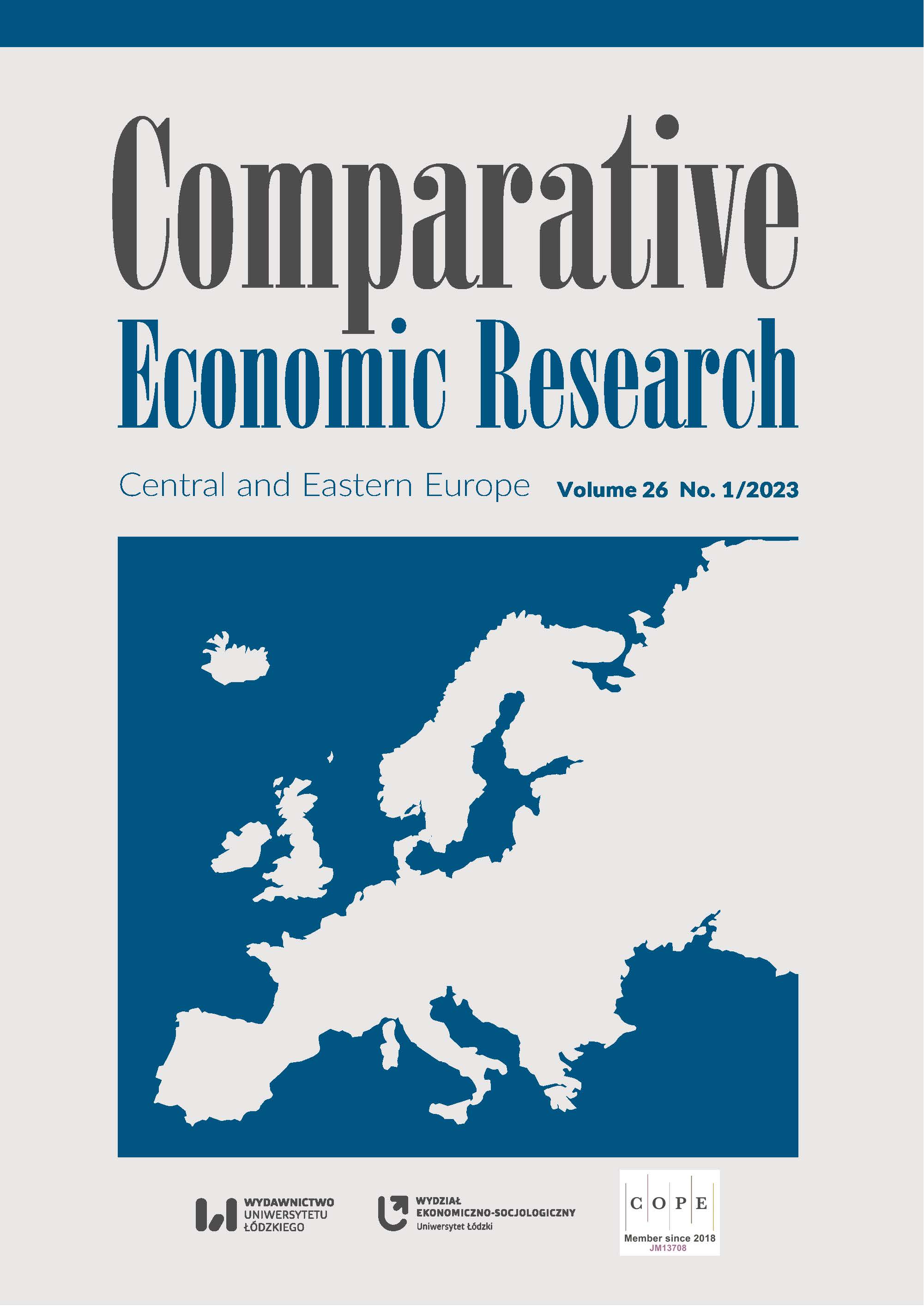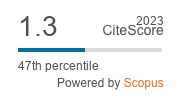A Review of Top Corporate Sustainability Initiatives and Their Resilience during the COVID–19 Pandemic
DOI:
https://doi.org/10.18778/1508-2008.26.06Keywords:
sustainable development, corporate sustainability, CSR concept, COVID–19, managerial strategies, social activitiesAbstract
The main goal of this research is to determine the advantages of implementing corporate social responsibility (CSR) principles and the contribution they make to achieving the sustainable goals of business structures. To achieve this goal, the economic activity of small, medium‑sized and large companies from different countries was studied. The article focuses on the economic crisis triggered by the COVID–19 pandemic, which has affected the entire world economy. It is proven that it is easier for companies that have implemented the principles of environmental, social, and managerial sustainability to adapt to change, and they are more resilient. A number of factors that hinder the development of CSR enterprises have been identified: the lack of domestic legislation, including the National Strategy for Corporate Social Responsibility in Ukraine, the lack of state support for CSR development and incentives, a sufficient level of perception of the importance of CSR by enterprise management, and, of course, limited financial resources. The paper proposes that the organization of CSR in enterprises should be organically integrated into their governance and managerial strategies. An important condition is the development and adoption of Corporate Codes and the implementation of non‑financial reporting. Also, it is important to identify those responsible for its implementation.
Downloads
References
Corporate Knight (2021a), 2021 Global 100 ranking, https://www.corporateknights.com/rankings/global-100-rankings/2021-global-100-rankings/2021-global-100-ranking/ (accessed: 3.02.2022).
Google Scholar
Corporate Knight (2021b), The 2020 Global 100: Overview of Corporate Knights Rating Methodology, https://www.corporateknights.com/wp-content/uploads/2020/07/2020-Global-100_Methodology.pdf (accessed: 10.02.2022).
Google Scholar
CSR Ukraine (2021), Second catalogue of CSR initiatives 2020–2021, https://csr-ukraine.org/materials/drugiy-katalog-ksv-iniciativ-2020-2021-rr/ (accessed: 15.02.2022).
Google Scholar
Diez‑Cañamero, B., Bishara, T., Otegi‑Olaso, J.R., Minguez, R., Fernández, J.M. (2020), Measurement of Corporate Social Responsibility: A Review of Corporate Sustainability Indexes, Rankings and Ratings, “Sustainability”, 12 (5), 2153, https://doi.org/10.3390/su12052153
Google Scholar
DOI: https://doi.org/10.3390/su12052153
Elkington, J. (1997), Cannibals with forks – Triple bottom line 21st century business, CT New Society Publishers, Toney Creek, https://doi.org/10.1002/tqem.3310080106
Google Scholar
DOI: https://doi.org/10.1002/tqem.3310080106
Frederick, W.C. (2006), Corporation be good! The Story of Corporate Social Responsibility, Dog ear Publishing, Indianapolis.
Google Scholar
Hąbek, P. (2014), Evaluation of sustainability reporting practices in Poland, “Quality & Quantity”, 48, pp. 1739–1752, https://doi.org/10.1007/s11135-013-9871‑z
Google Scholar
DOI: https://doi.org/10.1007/s11135-013-9871-z
Hurst, N.E. (2004), Corporate Ethics, Governance and Social Responsibility: Comparing European Business Practices to those in the United States, https://silo.tips/download/corporate‑ethics‑governance‑and‑social‑responsibility‑comparing‑european‑busines (accessed: 18.03.2022).
Google Scholar
International Monetary Fund (n.d.), https://www.imf.org/en/ (accessed: 15.12.2021).
Google Scholar
Pal, M., Jenkins, J.J. (2014), Reimagining Sustainability: An Interrogation of the Corporate Knights’ Global 100, “Environmental Communication”, 8 (3), pp. 388–405, https://doi.org/10.1080/17524032.2014.906477
Google Scholar
DOI: https://doi.org/10.1080/17524032.2014.906477
Parris, T.M. (2006), Corporate Sustainability Reporting, “Environment: Science and Policy for Sustainable Development”, 48 (5), https://doi.org/10.3200/ENVT.48.5.3-3
Google Scholar
DOI: https://doi.org/10.3200/ENVT.48.5.3-3
Schneider Electric (2021), Schneider Electric Sustainability Report 2020–2021, https://www.se.com/us/en/download/document/SustainabilityReport2020EN/ (accessed: 15.03.2022).
Google Scholar
Stantec (2020), Stantec Sustainability Report 2020, https://interactive.stantec.com/earth‑day‑overview/p/1 (accessed: 8.04.2022).
Google Scholar
Statista (n.d.), https://www.statista.com/ (accessed: 3.04.2022).
Google Scholar
Vorfolomeev, A.V. (2020), COVID–19 influence on Ukrainian manufacturing enterprises and assistance in restoring normal work: a report on the results of a survey of the Center for Resource Efficient and Clean Production, Center for Resource Efficient and Clean Production, Kyiv, http://www.recpc.org/wp‑content/uploads/2020/07/Survey‑Results‑RECPC‑Ukr.pdf (accessed: 30.03.2022).
Google Scholar
Walton, C. (1967), Corporate Social Responsibilities, Wadsworth, Belmont.
Google Scholar
Yıldız, A., Ozerim, G. (2014), Corporate Social Responsibility in European Context, [in:] D. Turker, H. Toker, C. Altuntaş (eds.), Contemporary Issues in Corporate Social Responsibility, Lexington Books, Lanham, pp. 43–55.
Google Scholar
Downloads
Published
How to Cite
Issue
Section
License

This work is licensed under a Creative Commons Attribution-NonCommercial-NoDerivatives 4.0 International License.











